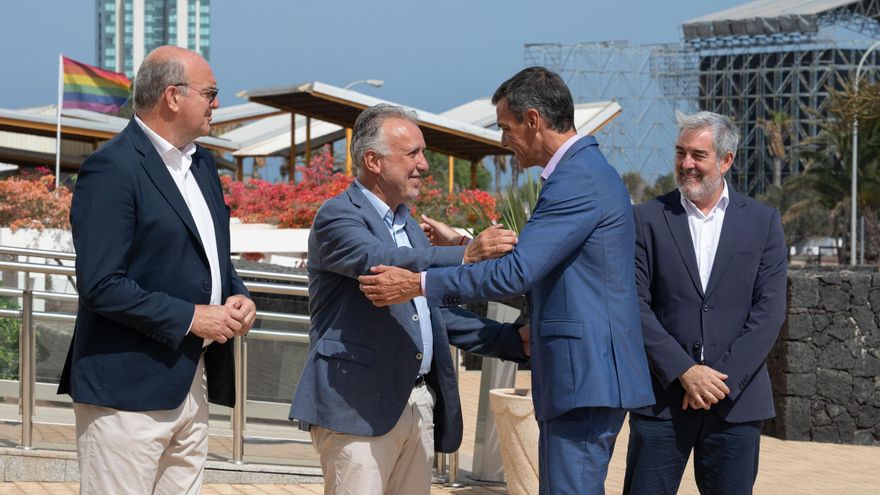A Fight for Equal Treatment in Airport Management
The government of the Canary Islands has declared it will not accept unequal treatment compared to Catalonia and the Basque Country regarding airport co-management. Octavio Caraballo, Deputy Minister of the Presidency’s Cabinet, asserts that if the Spanish state moves forward with creating a governing council for Catalan airports—following the 2024 agreement between the Republican Left of Catalonia (ERC) and the Socialist Party to invest Salvador Illa as president of the Generalitat—then the Canaries cannot be left behind.
Why Airport Control Is a Historic Demand
This central government shift suggests a willingness to explore letting Catalonia and the Basque Country participate in managing their airports, which are currently exclusively administered by the state through Aena. This is a historic demand of Basque and Catalan nationalists, whose support, along with parties like the Canary Coalition (CC), underpins Pedro Sánchez’s fragile investiture majority. In response to these political maneuvers, the regional government does not want to be left out. The Canary Islands have been requesting co-management of their airports for decades, a demand powerfully backed by Article 161 of the Statute of Autonomy and the Canary agenda agreed upon by the PSOE and CC to support Pedro Sánchez’s investiture.
The Immense Scale of Canarian Aviation
Caraballo highlights that the Archipelago handles over 52 million passengers a year, compared to Catalonia’s 58 million, but with a crucial difference: “In Catalonia, 54 million are concentrated at Barcelona airport; in the Canaries, this figure is distributed across several airports and a far more complex air market, with inter-island flights, connections to the mainland, Europe, and Africa.”
The Current System Is “Absolutely Useless”
Currently, the only organizing body is the Airport Coordination Committee, created in 2014. “In ten years, it has met eleven times. It is absolutely useless for anything,” states Caraballo, who insists that a functional governing council would play a decisive role in defining and managing the Canary Islands’ air system.
What a New Governing Council Would Achieve
The Deputy Minister emphasizes that this new body would improve operational efficiency, service quality, and adapt management to island specificities. It would also oversee infrastructure investments and fee policies, which are currently set universally without regard for the Archipelago’s unique needs. “It cannot be that a global fee increase is applied without considering our reality,” he criticizes.
Preparing a Decree for Canarian Priorities
To materialize its co-management demand—a issue already presented to former Prime Ministers like José Luis Rodríguez Zapatero and Mariano Rajoy—the Canary Islands government is now preparing a specific decree. This was agreed upon with Pedro Sánchez during a meeting on Lanzarote while the Spanish president was on vacation. There, the autonomous government head, Fernando Clavijo, demanded a specific decree-law addressing the most urgent issues on the Canary agenda.
Addressing Urgent Island Challenges
The regional government is exploring the legal mechanisms needed to use funds from the Community’s accumulated surplus. These funds, which couldn’t be invested due to spending rules, would be used to resolve urgent, exceptional issues in the Canaries that cannot wait for state budgets. These include the recovery of La Palma after the volcanic eruption, the migration crisis, and reinforcing the energy system to prevent further blackouts.
Technical Meetings and Political Mediation
The intention is to draft the decree-law and negotiate it with the Ministry of Finance, following the “line of work” opened with Sánchez after the Lanzarote meeting. Furthermore, the Canary Coalition spokesperson in Congress, Cristina Valido, and the Secretary of Organization of the Canarian nationalists, David Toledo, held a technical meeting in Madrid in June with the Secretary of State for Relations with the Courts, Rafael Simancas, and Carlos Moreno, director of the cabinet of the Vice President and Minister of Finance of the Spanish Government, María Jesús Montero.
During this meeting, progress was made on the Spanish government’s commitment to the Islands’ participation in the management of their airports, currently managed by Aena. They pointed to the Canarian Minister of Territorial Policy, Ángel Víctor Torres, as the mediating person. According to Valido and Toledo, Torres has not “made a move” beyond sending a letter requesting the Canary government ask for a “formal meeting.” Therefore, they now say everything hinges on a meeting between Minister Montero and Clavijo to negotiate the Canary decree.

